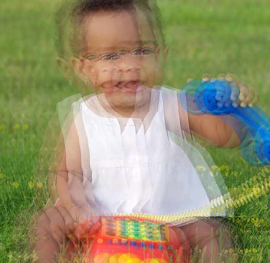Vision Impairment
and Double Vision
Are you struggling with your new eyeglass prescription or finding it easier to see if you cover one of your eyes? Not being able to clearly see the world around you can make your life incredibly difficult and have a negative impact on your work, family life, and participating in your favorite activities.
It may be your eyes:
Vision Impairment and Double Vision
Are you struggling with your new eyeglass prescription or finding it easier to see if you cover one of your eyes? Not being able to clearly see the world around you can make your life incredibly difficult and have a negative impact on your work, family life, and participating in your favorite activities.
It may be your eyes:

Our patients have had difficulty adjusting to new eyeglass prescriptions, have had shadowed/blurred or double vision and light sensitivity. They have attempted to get help. If after trying multiple doctors, countless treatments, and medications you are still unable to find vision impairment relief, you may have Binocular Vision Dysfunction.

Binocular Vision Dysfunction & Vision Impairment Relief
Your vision is determined by more than just your eyesight. The alignment of your eyes also plays a pivotal role in your vision. Binocular Vision Dysfunction occurs when there is a subtle misalignment of your eyes. When left unchecked, this misalignment can result in the following vision impairments:

Double Vision:
A condition where a sufferer sees two images instead of one when looking at an object. With double vision, you may see a second image that is next to, on top of, or on the diagonal from the first image because both of your eyes are not able to focus on the same spot. When standard treatments do not treat your double vision, vision misalignment might be the cause. By treating your misalignment with our specialized aligning lenses, the object will be brought into focus allowing you to see a single, clear image.

Shadowed or Blurred Vision:
Having shadowed or blurred vision is the mildest form of double vision. When your eyes are even slightly misaligned, you perceive the image as having shadowed or blurred edges. As the misalignment worsens, the separation between the two images increases, causing the images to overlap or double. By treating your misalignment with our specialized aligning lenses, we can enable your eyes to work together and see a single, distinct image.

Light Sensitivity:
A condition in which you feel as if it is too bright or that there is too much light in a normally lit environment. You may squint, wear dark colored glasses, or wear a visor while indoors. When your light sensitivity is caused by Binocular Vision Dysfunction you are experiencing some amount of shadowed or possibly double vision. Your brain interprets this as seeing extra light or glare, resulting in your light sensitivity. By treating your vision misalignment, we can provide you with light sensitivity relief.

Difficulty Adjusting to New
Eyeglasses:
Before coming to Vision Specialists of Michigan, many of our Binocular Vision Dysfunction patients have had difficulty adjusting to new pairs of eyeglasses. Because your vision is misaligned, it is critical to line up to the center of the lenses to the position of your eyes, and in many instances, this does not occur. By taking into account your vision misalignment, our doctors can provide you with specialized aligning lenses that will position your prescription correctly to your eye so that you can adequately adjust to your new glasses

At Vision Specialists of Michigan, we understand how overwhelming your vision impairment can be and are dedicated to providing you relief. With our comprehensive NeuroVisual Examination, our compassionate doctors will determine the extent of your vision misalignment and use those results to prescribe the appropriate specialized aligning lenses for you. Unlike your standard eyeglass prescription, our lenses treat your Binocular Vision Dysfunction, along with any additional vision impairments, to allow your eyes to work together. By taking into account your misalignment we can provide you with proper vision impairment relief.
Having chronic shadowed or blurred or double vision, or light sensitivity can make navigating your environment incredibly difficult and overwhelming. Let Vision Specialists of Michigan help you find out if you have Binocular Vision Dysfunction. Complete the screening questionnaire or contact us today to determine if we can help you experience neck pain relief.
Want to learn more about Binocular Vision Dysfunction?
Watch these videos of BVD patient experiences:
Purple Heart Veteran’s Vision Misalignment Caused by Traumatic Brain Injury
Professional Colleagues Discuss Binocular Vision Dysfunction
Veteran’s Story of Binocular Vision Dysfunction and Triumph over TBI
People also view
It may be your eyes
Daily Stomach Ache, Headache, Nausea:
Christine's Binocular Vision Dysfunction Story
Headaches and Learning Challenges:
Kali's Binocular Vision Dysfunction Story
Years of Daily Headaches, Nausea, and Dizziness:









